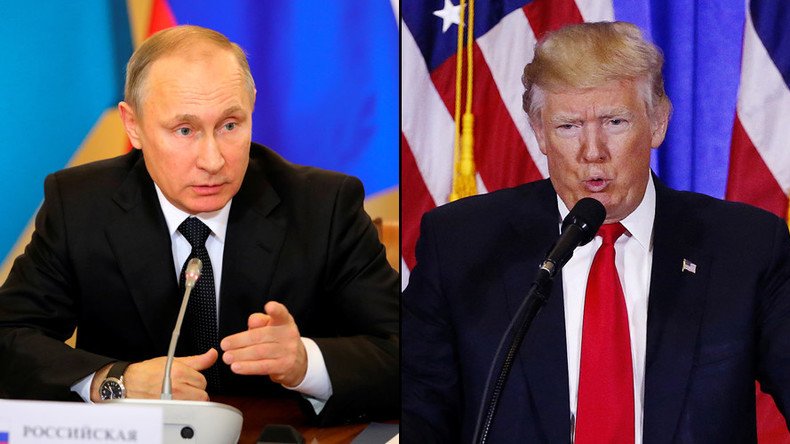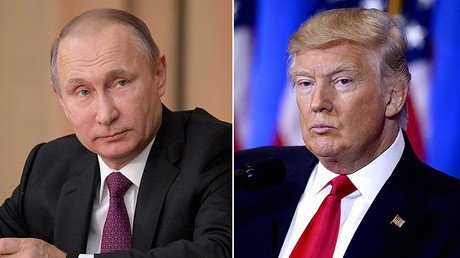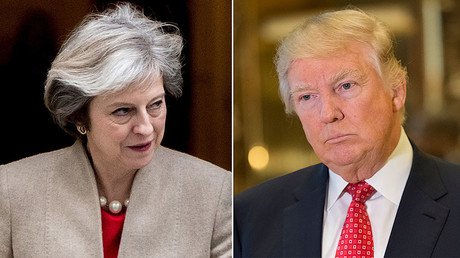The art of the deal: What does Russia want from Donald Trump?

American news outlets are full of op-eds advising President-elect Donald Trump on how to handle Russian policy. However, what does the Kremlin seek from the relationship?
Depending on whom you are listening to, Trump presents differing challenges or opportunities for Russia. Often he’s presented as an unwitting agent of the Kremlin. And other times, more hysterical elements of the American media deride him as a knowing operative of Moscow. This is owing to a new word they’ve discovered called ‘kompromat.’ Which joins “perestroika” and “glasnost” in the lexicon of Russian appellations pub bores can use to feign insider knowledge.
However, there are also voices warning us that he’ll quickly fall out with Vladimir Putin. And a nuclear conflict could follow as an angry Trump decides not only to destroy his fortune but also his family and the entire world in a fit of pique. “You’re fired, Putin.” Or fried as the case may be.
For those of us who haven’t lost our marbles, the reality is more sober and complex.
Public utterances from both Putin and Sergey Lavrov this week have made expectations a little clearer. Put plainly, Russia is hoping for a swift improvement in relations with Washington. But it’s not banking on it.
First up on Tuesday, the foreign minister outlined his frustration with the outgoing US administration. Especially when it came to Syria. But he sounded an optimistic note and trusted the Trump team would be more transparent. “We hope that they have a different approach and they will not resort to double standards in order to fight terrorism,” he said.
In addition, Lavrov pointed to a sharp increase in American espionage activity during Obama’s second term. He accused spies of resorting to ever more bizarre methods to go incognito in Russia, including cross-dressing. And the veteran diplomat also pointed to US intelligence officers interfering in domestic Russian politics by attending opposition rallies in disguise. There was further mention of attempts to recruit senior Russian foreign ministry staff as double agents in recent years.
Lashing out
For his part, Putin later weighed in with some colorful invective of his own. Referring to allegations that Moscow had somehow connived to assist Trump in last year’s election he said: “Prostitution is an ugly social phenomenon,” adding how people who stand behind "fabrications" being used against Trump "are worse than prostitutes.” The Russian leader also called allegations insisting Moscow might have ‘kompromat' on the US president-elect "evidently fake."
It now turns out that the phony allegations against me were put together by my political opponents and a failed spy afraid of being sued....
— Donald J. Trump (@realDonaldTrump) January 13, 2017
“When Trump visited Moscow several years ago, he wasn't a political figure. We didn't even know about his political ambitions; he was just a businessman, one of America's richest people. So does someone think that our intelligence services go after each American billionaire? Of course not, it's complete rubbish," the President said.
Putin and Lavrov’s double salvo betrayed how the Russian government is evidently angry about the present narrative. While, at first, suggestions that Moscow manipulated and meddled in the American vote might have seemed like harmless speculation, the story has grown legs and gone for a walk stateside. Moreover, the Kremlin is fed-up.
Because having expected Hillary Clinton to romp home they were undoubtedly as surprised as the rest of us when Trump defied the odds. Unless you believe Russian intelligence knew more than almost every pollster, bookmaker and pundit in America. Which is about as likely as them knowing next week’s winning lottery numbers.
Indeed, Putin publicly exhibited his frustration when he stated Tuesday: "I don't know Mr. Trump personally, I have never met him and don't know what he will do in the international arena. So I have no grounds to attack him or criticize him for anything, or protect him or whatever.”
From Friday on, we all have to get used to the idea of President Trump. And he's made it clear how he will attempt to open a new chapter in Russian-US relations. The fact he’s not looking for a sense of Putin’s soul or hailing American 'exceptionalism' means experienced Russia hands are cautiously optimistic because rigid dogma doomed his two immediate predecessor’s efforts. Furthermore, the proposed cabinet appointees - notably Secretary of State nominee Rex Tillerson - suggest Trump’s administration might adhere to the realist school of statecraft. Something shared by their counterparts in Moscow.
'BuzzFeed Runs Unverifiable Trump-Russia Claims' #FakeNewshttps://t.co/d6daCFZHNh
— Donald J. Trump (@realDonaldTrump) January 11, 2017
Different views
American viewpoints on what Washington should demand from Moscow before improving relations differ wildly. They range from the hardline to the relatively moderate to the cautiously optimistic. But nobody seems to be asking what the Kremlin wants from Trump. So, based on numerous conversations with Russian opinion-formers and insiders, here is my best guess. And this assumes that Trump looks for a significant “deal” with Moscow, as he has intimated.
Moscow’s key demands shall likely include an end to US interference in the internal politics of countries in Russia’s hinterland, especially the encouragement of ‘color revolutions.’ Putin will also seek a commitment to no further eastward expansion of NATO. While recognition of Russia’s re-absorption of Crimea is important, so too the Kremlin will press for Washington to pressure Ukraine to fully implement the Minsk Agreement, which was supposed to resolve the Donbas conflict. There could also be Russian demands to scrap the controversial Magnitsky Act. Something the White House would find almost impossible to pass through Congress.
One reason why bilateral relations have never blossomed is the ridiculously low level of trade between the two countries, so expect to see Putin and Trump push for heightened engagement. Perhaps even some special commercial zone in their Alaska-Far East border areas. Indeed, one radical Russian plan has even suggested a high-speed rail link across the Bering Strait.
Missiles will be another issue. Trump has already intimated that he's going to seek a reduction in Russian nuclear stockpiles as a condition for sanctions relief. This neatly separates the embargoes from the Ukrainian issue, which clearly doesn’t interest the incoming President. According to sources in the domestic media, Moscow is likely to agree to this proposal, as long as parity is maintained.
Give and take
Trump’s forte is making deals. Thus, he’ll expect Russia to concede plenty in return. With that in mind, Putin must surely agree to a joint military campaign against ISIS and other terror groups. That may require cooperation all across Central Asia and the Middle East and will be a formidable undertaking for both sides. Trump's also likely to demand a Russian pledge not to interfere in the internal affairs of NATO members and a cast iron promise not to threaten the Baltic states going forward.
The return of Donbass and Lugansk to Kiev’s control is important in settling the Ukraine conflict, and Moscow can be expected to bring rebel groups there to heel. Also, the Americans may enlarge the settlement by seeking the resolution of issues concerning Transnistria, Abkhazia and South Ossetia with Moldova and Georgia.
Washington is concerned about resource security too and may look for preferential treatment for US companies in that area. Added to this, expect demands for the resumption of adoptions by Americans from Russian orphanages and the elimination of Russian bans on Western food products.
The most likely sticking point is China. During the past decade, and especially since the 2013 confrontations over Ukraine and Syria, Moscow has cultivated closer relations toward Beijing. However, Trump has made it obvious that he plans to replace Russia with its eastern ally as chief Washington bogeyman. And he could seek the Kremlin’s assistance in ‘containing’ the Chinese. While this could satisfy elements here who have never agreed with Putin’s “pivot to Asia,” it will alarm many who take the long-term view. Because what would happen if, in 2021, Trump fails to get re-elected and his successor decides to flip Sino-Russian roles again?
The highly democratic nature of American politics makes long-term strategic planning with Washington difficult. Witness, for instance, how the Germans have oscillated from de facto enemies during the Gerard Schroeder-George Bush years (because Berlin opposed the Iraq War) to best buddies under the Obama-Angela Merkel administrations, due to shared uber liberal values.
Now, it appears that Trump is poised to kibosh the accord because of a dislike of the German Chancellor’s policies on migrants and the EU.
Moscow is acutely aware of these uncertainties. And the Kremlin also comprehends that much of Trump’s own Republican Party will be suspicious of his overtures to Russia. Accordingly, it’s naive in the extreme to expect collective skepticism to morph into communal sureness suddenly.
Nevertheless, the incoming President may prove to be a realist in the Reagan mold who can maintain a dependable, persistent and rational line toward Russia, free from romantic and abstract notions of superior American “goodness.” And this could finally allow connections to normalize. At least for the next four years.
The statements, views and opinions expressed in this column are solely those of the author and do not necessarily represent those of RT.
















